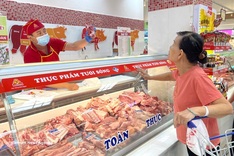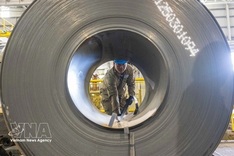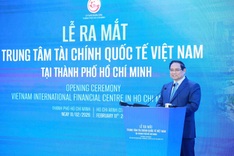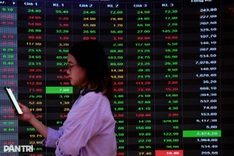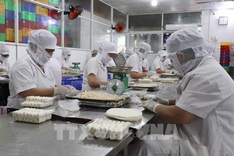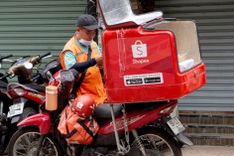With the emerging economy and rising living standards of Vietnamese, the retail sector is expected to witness fast expansion in the country. Market research firm RNCOS has said in its report "Vietnam Retail Analysis (2008-2012)" that although the Vietnamese retail market is dominated by the food segment, the country has witnessed an impressive expansion of the non-food segment over the past few years. The non-food retail sales grew at a robust CAGR of nearly 22% during 2005-2008. Clothing and footwear are two important segments of non-food retail. The retail sales of clothing and footwear are expected to grow at a CAGR of 11% and 10% respectively during 2009-2012.
Market research firm RNCOS has said in its report "Vietnam Retail Analysis (2008-2012)" that although the Vietnamese retail market is dominated by the food segment, the country has witnessed an impressive expansion of the non-food segment over the past few years. The non-food retail sales grew at a robust CAGR of nearly 22% during 2005-2008. Clothing and footwear are two important segments of non-food retail. The retail sales of clothing and footwear are expected to grow at a CAGR of 11% and 10% respectively during 2009-2012.
In the meantime, the Vietnamese drinks sector continues to attract investments from international players, despite the slowdown in investments on the back of the global financial crisis. As discussed in the recently published Vietnam Food & Drink Report for Q210 by research firm BMI, a number of major global brewers recently announced fresh investments into the country's beer sector, as competition continues to heat up.
In November 2009 Danish brewing giant Carlsberg announced plans to acquire the remaining 50% stake in Central Vietnam's Hue Brewery as part of its objective to strengthen its position in the Vietnamese beer market. Carlsberg had originally purchased a 50% stake in the Vietnamese brewery in 1994 through a preliminary agreement with Hue People's Committee. This most recent acquisition will provide Carlsberg with a stronger presence in Central Vietnam where Hue is the market leader through its Huda brand. As Vietnam's beer market grows, in line with the country's rapid economic development, a nationwide presence is becoming an essential requirement for the leading players. Demand is no longer coming out of the two major urban centres of Hanoi and Ho Chi Minh City, as incomes and tourism levels are rising in city centres across the country. If a brewer is to fully exploit the country's attractive beer market, it must have access to more than two or three profitable cities, hence this move by Carlsberg.
This was followed by the announcement in late December by Japanese brewer Sapporo that it had acquired a 65% stake in Kronenbourg Vietnam, the Carlsberg and Vietnam National Tobacco Corporation (Vinataba) 50:50 joint venture (JV). The US$25.4mn deal will see Sapporo take full ownership of Carlsberg's stake and 15% of Vinataba's interest. Sapporo has already confirmed that the construction of a new brewery will be among its first priorities upon completing the acquisition. This investment in capacity expansion will be important if Sapporo is to compete effectively in Vietnam. The local beer market is very competitive, with market leaders already established in Saigon Beer Alcohol and Beverage Corporation (Sabeco) and Hanoi Beer Alcohol and Beverage Corporation (Habeco), while several powerful multinationals, including Heineken's JV Asia Pacific Breweries, as well as Carlsberg, have also already emerged as major players.
Bearing in mind the competitive business environment, Sapporo has been moderate in its market share aims, with the new JV targeting just 3% of the market by 2019, and yet even this will require significant financial support given the sums its rivals are also pumping into local growth. Given the vast potential of the local market, it is easy to see why. Vietnam is considered to be one the world's highest-potential beer markets, with growth fuelled by economic expansion and a growing tourism sector. With competition set to increase further as the market continues to open up to foreign investors, those brewers already present in the market can be expected to ramp up investment levels in order to secure a strong foothold.
Vietnam retail market set for rapid growth
With the emerging economy and rising living standards of Vietnamese, the retail sector is expected to witness fast expansion in the country.
Source: dtinews.vn

